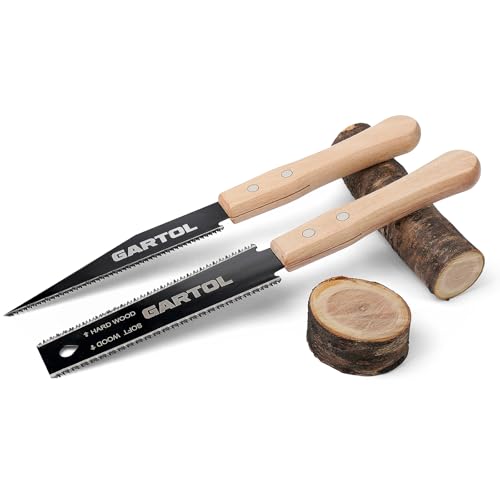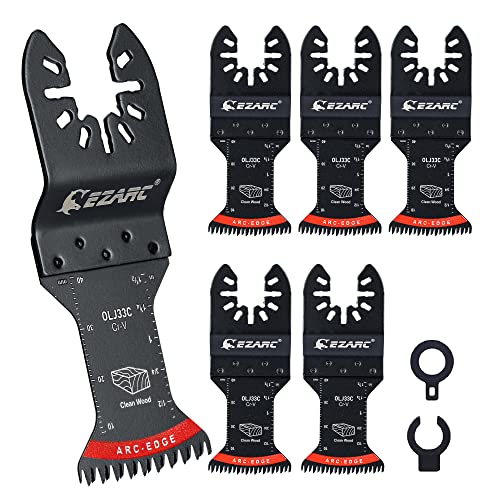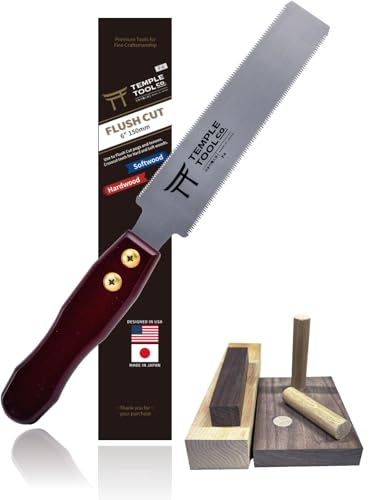When it comes to woodworking, precision and control make all the difference. That’s why many professionals and DIY enthusiasts turn to the best Japanese saws for their projects. These saws are designed with a unique pull-stroke mechanism, giving users cleaner cuts with less effort. But here’s the thing—choosing the right saw can feel overwhelming.
Looking for more options? If you’re specifically focused on fine craftsmanship, exploring the best Japanese woodworking saws is a smart move. For heavier tasks like tree trimming, you might want to compare the best gas pole saws instead. And if you’re curious about variety, our guide to the best saws overall can help you explore every category.
Ready to find out which Japanese saws stand out from the rest? Let’s dive in.
Top Picks
Best Precision Cuts: SUIZAN Ryoba Double Edge Saw 9.5" Assembly ver - Professional Japanese
This SUIZAN Japanese saw is built with high quality Japanese steel, offering a razor sharp 9.5 inch blade designed for fine cross sections and smooth finishes. The wooden handle provides a traditional feel and balanced grip, while its lightweight build makes it easy to maneuver for professional or hobby use. Its design allows accurate, clean cuts that are hard to achieve with conventional Western saws.
Many users highlight its precision and sharpness, making it ideal for woodworking projects where detail matters. However, some note that it is not versatile for materials beyond wood, and the short 30 day warranty may feel limited compared to other tools.
Overall, the SUIZAN saw delivers excellent cutting performance and control. It stands out for its craftsmanship and efficiency, making it a solid value for woodworkers who prioritize accuracy and fine results.
Best Lightweight Saw: RUITOOL Japanese Hand Saw 6 Inch Double Edge Sided Pull Saw
The RUITOOL Japanese pull saw features a 6 inch SK5 steel blade with 17 teeth, designed for clean and precise wood cutting. Its compact size and lightweight design make it easy to handle, especially for smaller woodworking projects. The beechwood handle provides a comfortable grip, while the rectangular blade shape ensures smooth operation. With a lifetime warranty, it offers long term reliability compared to many competitors.
Customers appreciate its portability and ease of use, noting that it is well suited for detail work or projects in tight spaces. On the downside, the shorter blade limits cutting depth, making it less effective for larger pieces of wood.
Overall, the RUITOOL saw is a practical and durable tool for fine woodworking tasks. It offers excellent control and value for users who prioritize precision and lightweight handling over heavy duty performance.
Best Pruning Power: EZARC Japanese Teeth Reciprocating Saw Blade 9 Inch
The EZARC Japanese Teeth reciprocating saw blade is designed for fast, efficient pruning and wood cutting. At 9 inches long, it features an arc edge design that provides better control and reduced friction when cutting through large branches. Its triple ground, fleam sharpened teeth offer three cutting angles, ensuring aggressive performance with a smooth feel. With deep gullets, it clears debris effectively while maintaining speed.
Users note that the blade cuts quickly through both wet and dry wood, making it versatile for trimming, firewood, and general yard work. Its extended lifespan compared to standard blades is a major advantage, especially for heavy pruning jobs. However, the coarse tooth profile leaves a rougher cut surface, and the lack of compatibility with Ryobi saws limits some buyers.
Overall, this EZARC blade stands out for its speed, durability, and control in tree pruning and wood cutting. It offers strong value to homeowners and professionals needing reliable performance in outdoor cutting tasks.
FAQs
What is the best Japanese saw brand?
Several Japanese brands stand out, but Suizan and Gyokucho are widely recognized as top choices. Suizan is known for its dedication to traditional craftsmanship combined with modern production quality. Gyokucho, on the other hand, is credited with popularizing the replaceable blade system, making their saws both durable and convenient. These two brands consistently deliver reliable performance and precision, making them favorites among woodworkers worldwide.
Are Japanese saws better?
Japanese saws are often considered better for certain types of cuts due to their pull-stroke design. Unlike Western push saws, Japanese saws cut on the pull, which reduces the chance of the blade binding or buckling. This method allows for thinner blades, resulting in finer, more accurate cuts. They are especially favored in woodworking projects that demand high precision, though Western saws still hold an advantage in heavy-duty cutting.
Where are Suizan saws made?
Suizan saws are manufactured in Japan, where skilled artisans oversee the production process. The company emphasizes maintaining traditional techniques while incorporating modern improvements in blade design and durability. By producing their tools domestically, Suizan ensures that each saw meets strict quality standards rooted in Japanese craftsmanship.
Who makes the best hand saws?
The “best” hand saws depend on the intended use. For woodworking precision, brands like Suizan and Gyokucho are highly respected. For general hand saws, Western manufacturers such as Stanley and Bahco are also well-regarded. Ultimately, the best hand saw is one that balances durability, comfort, and cutting efficiency for the user’s specific project needs.
Which brand of saw is the best?
No single brand dominates every category of saws. For Japanese pull saws, Suizan and Gyokucho lead the field. For Western-style hand saws, Bahco and Stanley are strong contenders. If you need powered options, brands like Stihl and Husqvarna excel in chainsaws, while Makita and DeWalt are popular for electric saws. The “best” brand always comes down to the type of saw and the task at hand.
Conclusion
Japanese saws continue to earn global recognition for their precision, craftsmanship, and ease of use. Whether you are a beginner learning fine joinery or a professional seeking reliable tools, brands like Suizan and Gyokucho consistently deliver quality. While Western saws remain practical for heavy-duty work, Japanese pull saws stand out for delicate, accurate cuts. Choosing the right tool ultimately depends on your project, but with Japanese saws, you gain a blend of tradition and performance that is hard to beat.






















